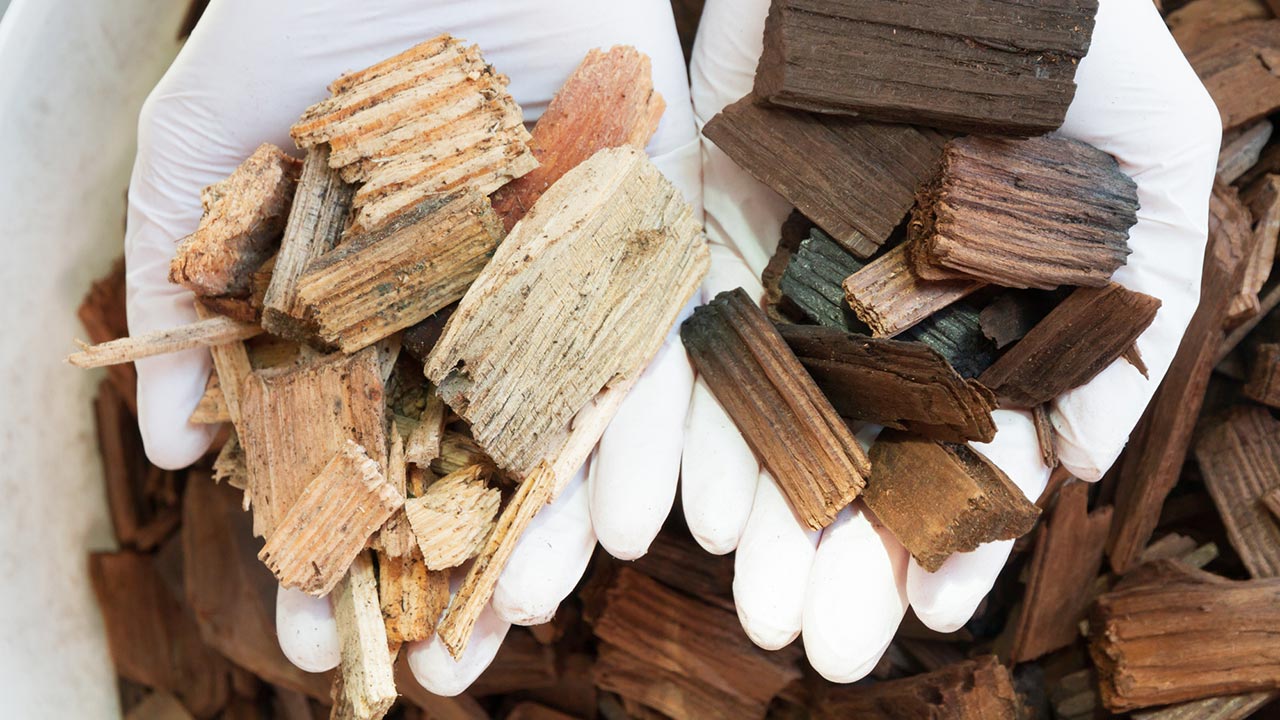Thermochemical refinement of wood
Researchers from Fraunhofer IGB have developed a process for torrefaction of biomass. It is now being tested on a large scale to produce green chemicals and biochar.

A sustainable bioeconomy pursues the goal of utilizing biomass as completely as possible while realizing as many material uses as possible. Usually, this is done in several successive processes that are bundled in biorefineries. But there is another way: with so-called torrefaction, a variety of products can be generated from biomass in just one step. Researchers at the Fraunhofer Institute for Interfacial Engineering and Biotechnology (IGB) have developed such a process. In Estonia, a start-up now tests the process in a first industrial-scale prototype.
Methane, furfural and biochar
In torrefaction, biomass is treated with superheated steam without the addition of air. Similar to the production of coke from coal, this process releases the volatile components and increases the energy density in the remaining residual material. In the process developed by Fraunhofer IGB, torrefaction takes place under normal atmospheric pressure at 200 to 300 degrees Celsius, i.e. with comparatively low energy input. The process produces basic chemical substances such as methanol and furfural in the gas phase and water and biochar as the solid phase.
"When we cool the gas phase, we obtain a condensate that we can separate into various chemical base substances using subsequent separation processes such as distillation, extraction or electrodialysis," explains Antoine Dalibard from Fraunhofer IGB. The volatiles in the gas phase come mainly from hemicellulose, which is a major component of biomass. The biochar can be ground into dust or compressed into pellets. In thermal power plants, it can then replace coal or natural gas with low CO2 emissions.
Prototype processes 150 kilos of biomass per hour
"In the face of rising energy prices and a historic low in energy security, we want to make a clean and carbon-neutral energy supply a reality with the Uniformer technology, as we have named it," says Sven Papp, one of the co-founders of Estonian startup New Standard Oil. The startup unveiled its first commercial-scale prototype in February 2023. The plant processes up to 150 kilograms of wood chips or hay per hour and produces 100% marketable products. Even the distilled water and process heat can be recycled.
With this efficient utilization of biomass, the founding team has big dreams: "According to our calculations, with the help of this new innovative approach, the price of renewable electricity from biocoal could even be lower than that from onshore wind energy," reports Papp. But that has yet to be proven.
bl


